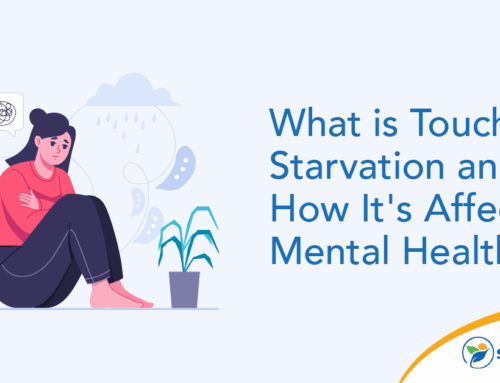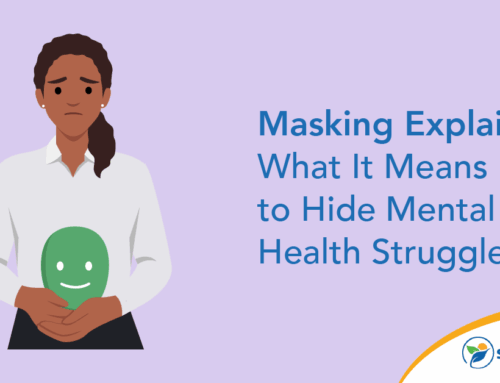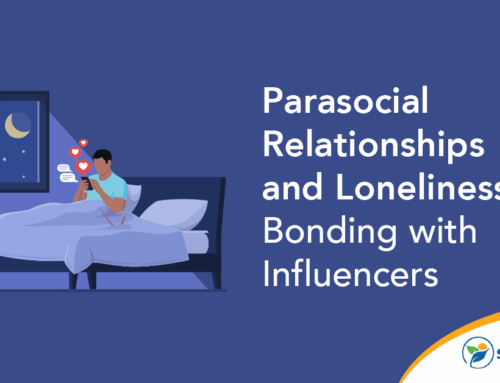Anyone who’s ever felt sick with worry can attest to the link between anxiety and stomach issues. While stress-related stomach problems are relatively well-known, many people underestimate the complex relationship between gut health and mental wellness. Below, we’ll explore how mental health impacts the digestive system and how to find relief.
Anxiety and Stomach Issues: What’s the Link?
The brain and gastrointestinal system are inextricably linked, and thoughts and emotions can impact the gut. For example, seeing or thinking about food prompts the stomach to produce juices to aid digestion.
Interestingly, the link also works the other way. Problems in the stomach or intestines can also affect the brain, so it’s often worth considering a person’s mental health when evaluating stomach complaints. Sometimes, anxiety and other mental health disorders can lead to gastrointestinal problems. Conversely, preexisting gastrointestinal issues could contribute to a person developing a mental health problem.
The gut contains a complex network of nerves called the enteric nervous system. This system communicates with the brain, allowing mood changes to impact gastrointestinal functions. Mental health disorders like anxiety can change the rate at which food moves through the gut and alter intestinal contractions, leading to a range of potential symptoms. In the same way, signals caused by stomach issues can impact a person’s mood.
There’s also evidence that people with irritable bowel syndrome (IBS) and other gastrointestinal disorders may be more sensitive to pain. Therefore, normal bodily functions could become painful. When this happens, a person is said to have visceral hypersensitivity. Experiencing chronic pain increases a person’s risk of developing a mental health disorder.
Whether the mental health disorder or gastrointestinal issue comes first, it’s important to understand that the symptoms of stress-related stomach problems are genuine. While the root cause may be psychological, the impact of mental health on the digestive system can cause clinical changes in the gut and how it functions.
Gastrointestinal Symptoms Linked to Anxiety
Stress and anxiety can cause various gastrointestinal issues. Anxiety and stress-related stomach problems are relatively common, affecting up to 40% of Americans at some point in their lives. Common gastrointestinal symptoms of anxiety include:
- Abdominal pain
- Diarrhea
- Constipation
- Bloating
- Nausea
- Flatulence
Symptoms can occur after or in anticipation of a stressful event. People with anxiety disorders may experience frequent or constant gastrointestinal issues if they feel anxious much of the time. Often, anxiety-induced stomach problems become a vicious circle, with a person’s anxiety exacerbating their gastrointestinal issues and vice versa.
A person might suspect a link between anxiety and stomach issues if their symptoms worsen during periods of stress. However, it’s essential to remember that stomach problems can also have nonpsychological causes. Anyone experiencing ongoing gastrointestinal issues should consult a gastroenterologist to rule out other underlying issues. Symptoms such as bloody stools or unexplained weight loss could indicate a more serious gastrointestinal disorder.
Anxiety and Preexisting Gastrointestinal Disorders
It’s also worth knowing that stress and anxiety can worsen certain preexisting gastrointestinal disorders. Digestive system conditions commonly affected by anxiety include:
- Gastritis
- Crohn’s disease
- Gastroesophageal reflux disease (GERD)
- Irritable bowel syndrome (IBS)
- Stomach ulcers
For people with underlying gastrointestinal problems, managing stress and anxiety can help keep the symptoms of their disorder under control. Seeking prompt support for mental health issues can also help minimize the risk of flares.
Managing Stress-Induced Stomach Problems
Everyone experiences stress and anxiety sometimes, but frequent or constant stress stops the digestive system from functioning correctly. Therefore, treating mental health problems can help a person manage their gastrointestinal symptoms.
Mental health professionals specializing in treating anxiety disorders can recommend and deliver treatments to reduce a person’s symptoms and support healthy digestion. The best treatment for anxiety varies from patient to patient, but health care providers may recommend:
- Psychotherapy. Talking therapies and counseling can help a person learn new ways to cope with challenging events, thoughts and feelings. Cognitive behavioral therapy (CBT) is the most common option for people with anxiety disorders. CBT involves learning symptom-management skills and gradual exposure to anxiety triggers to help people gain confidence and return to their normal activities.
- Medication. In some situations, health care providers may prescribe medication for long-term or short-term relief from anxiety symptoms. Often, doctors recommend combining medications with non-pharmaceutical therapies.
- Self-help. Mental health specialists can help people with anxiety disorders make healthy lifestyle changes to manage their conditions.
At the same time, treating underlying gastrointestinal problems can help reduce stress and make it easier to manage anxiety. Treating both the mental health disorder and the gastrointestinal problems can help break the vicious cycle of worsening anxiety and stomach issues.
Coping With Anxiety-Related Stomach Troubles
Self-care and simple lifestyle changes can help reduce stress and anxiety and provide relief from stress-related stomach problems. What’s effective varies from person to person, and it’s worth trying a few approaches to find a combination that works. The following tips can make coping with anxiety-induced stomach troubles easier:
- Exercise. Regular exercise releases endorphins, which are feel-good brain chemicals that can improve mood and ease anxiety. Staying active can also provide distraction from difficult thoughts and feelings, boost self-confidence and help people socialize. Evidence also shows that gentle exercise reduces the risk of certain gastrointestinal problems.
- Regular, healthy meals. Small, frequent meals can help relieve gastrointestinal symptoms and prevent discomfort due to overeating. Eating a healthy diet rich in fruits, vegetables and fiber and avoiding processed foods also promotes gut health. Furthermore, research suggests that a nutritious diet rich in protein and low in sugar and saturated fat can reduce the risk of developing an anxiety disorder.
- Relaxation techniques. Practicing relaxation techniques such as guided imagery meditation, deep breathing and progressive muscle relaxation can promote mental calm. These exercises also reduce physical symptoms of stress and may help manage stress-related stomach problems.
Take the First Step Toward Recovery
Compassionate support from experts can help people with anxiety and stomach issues find effective treatment and achieve lasting relief. At Sunlight Recovery, our team of knowledgeable mental health professionals delivers proven therapies to ease anxiety and promote physical and psychological well-being. Contact us today to start the journey toward recovery and a healthy future.







